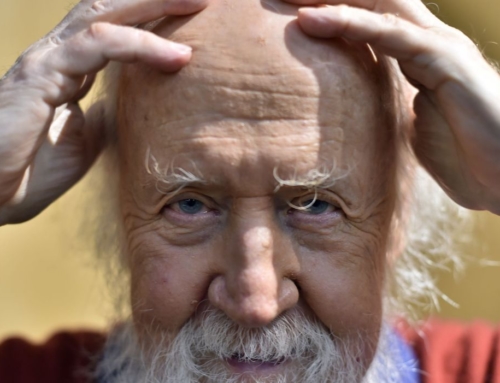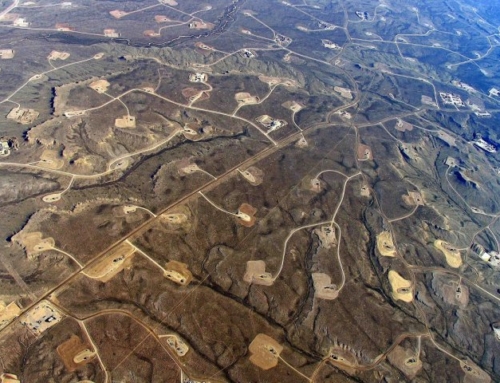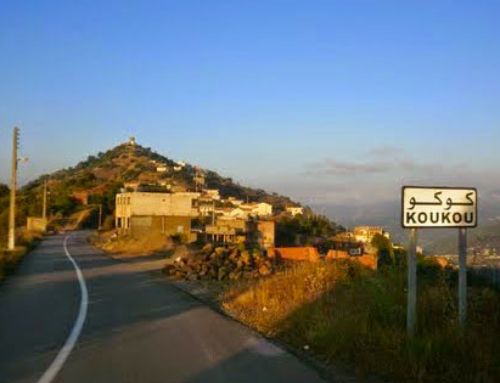4Jane Samson, Reform and Empire, inThe British Empire,ed. Why did China, despite its intense economic activity, not develop its economy? Direct link to Tyrone Cooper's post how has the gilded age be, Posted 4 years ago. Great Britain banned the slave trade to its Empire in 1807. Beijing as the capital, and the south as the other side. The Great Exhibition of Works of Industry of all Nations (1851), intended to showcase Britains industrial strength, brought the empire to London and reinforced its British audiences perception of their own national identity as an imperial power. Conflicts between peasant society and affluent society were constant. After the Spanish-American War, the United States exercised significant control over Cuba, annexed Hawaii, and claimed Guam, Puerto Rico, and the Philippines as territories. Johannes Haller and Heinrich Dannenbauer: An historical atlas: A chronological series of one hundred and twelve maps at successive periods, History of International Relations Open Textbook Project, https://en.wikipedia.org/w/index.php?title=List_of_medieval_great_powers&oldid=1166006162. This was, from the beginning, a new kind of colonization. British influence extended beyond the boundaries of the formally-held territories of the Empire. Along with its dangerous brothers, imperialism and militarism, nationalism fuelled a continental delusion that contributed to the growing mood for war. Unlike the white settler colonies of North America and Australasia, the Indian sub-continent never became a destination for large numbers of British emigrants. These were pushed inland by the British. Along with economic growth, Europeans were spurred on by national rivalry. Direct link to amgarcia430's post I feel like it's the oppo, Posted 8 months ago. T, Posted 7 years ago. In the new British possessions, the practice of indirect rule, particularly in sub-Saharan Africa, emphasised the role of indigenous rulers and traditional institutions, but these were incorporated within a larger colonial administration under British control. There were also imperialist powers outside the European continent, such asthe United States of America and Japan. Declare , Posted 4 years ago. The term "great power" has only been used in historiography and political science since the Congress of Vienna in 1815. (2009). Greater Britain: A Record of Travel in English-Speaking Countries during 1866 and 1867. The era of modern European imperialism in Africa, in which European imperial powers seized control, colonized, and governed most of the continent of Africa, has its origins in the 19th century. Imperialism is when one country exercises power over another through various methods of control. Direct link to Arnav Kamulkar's post Would it be correct to as, Posted 4 years ago. One answer is found in the Meiji Restoration itself. Imperialism in the 19th and 20th Centuries, Psychological Research & Experimental Design, All Teacher Certification Test Prep Courses, Ron Petrarca, Jessica Whittemore, Lesley Chapel, Absolutism and Constitutionalism in Western Europe (1648-1715), Power Shifts in Eastern Europe (1648-1740), Empire and Expansion in the 18th Century (1700-1799), The Scientific Revolution & the Enlightenment (1500-1790), The French Revolution and Napoleon Bonaparte (1780-1815), European Imperialism: Characteristics, Motives & Effects, The Colonization of Africa & the Berlin Conference: Definition & Purpose, High School US History Syllabus Resource & Lesson Plans, Ohio State Test - American History: Practice & Study Guide, US History 1870-1940: Lesson Plans & Resources, World History 1600-1900: Lesson Plans & Resources, NY Regents Exam - Global History and Geography: Test Prep & Practice, AP World History Syllabus Resource & Lesson Plans, Middle School US History Curriculum Resource & Lesson Plans, Prentice Hall World History Connections to Today Volume 1: Online Textbook Help, 19th Century Imperialism: Lesson for Kids. 3Andrew Porter, Religion and Empire, inThe Oxford History of the British Empire: The Nineteenth Century(Oxford: Oxford University Press, 1999), pp.229-31. The initial aim of this outburst of maritime activity was not so much the acquisition of extensive fresh territory as the attainment of a far-flung network of trading posts and maritime bases. In Asia, the Treaty of Nanking provided for British commercial ventures to be granted access to China in the wake of the First Opium War (1839-42); it also gave Britain possession of Hong Kong. She has a Master's degree in History. After 1870 and even more dramatically after 1885, there was a remarkable increase in the European acquisition of colonial territories in the South Pacific, Asia, and Africa. I don't understand what is it? France, Natural resources John Hudson was the captain of a steam-powered ship for the British navy. This political revolution "restored" the emperor to power, but he did not rule directly. This war ended up shaping the South African Union. At the Berlin Congress it was established that the African territories would be the property of those who actually occupied them, which was the thesis defended by the most powerful countries. It consisted of most of northern Eurasia.The Empire succeeded the Tsardom of Russia following the Treaty of Nystad.The rise of the Russian Empire coincided with the decline of neighbouring rival powers: the Swedish Empire . A wish to exploit the natural resources of the continents of the world was one of the main characteristics of imperialism. England traded it in China, until one day the emperor banned the trade, as all the population went on drugs. In the Second Opium War, England and France became allies. France will withdraw from Sudan and this territory will pass to English domination. Many conflicts arose due to imperialism. Major policy reforms are under way. The territory of British North America, the colonies remaining under British control after the establishment of the United States of America, continued to attract large numbers of settlers throughout the nineteenth century. Example: Western European nations exerted their influence in areas of Asia in order to stop Russia from expanding there. And in the 19th century the whole territory was already under English domination. The hat (with the words "world power") was America "trying on" the idea of taking control of other nations and seeing if they liked it. And along with the enormous technical superiority and the colonizing experience itself came important psychological instruments of minority rule by foreigners: racism and arrogance on the part of the colonizers and a resulting spirit of inferiority among the colonized. CITATION:n Fhlathin, Mire: "The British Empire in the Nineteenth Century." "American imperialism" is a term that refers to the economic, military, and cultural influence of the United States on other countries. The French diplomatJoseph Arthur de Gobineauwrote in 1853-1856 An Essay on the Inequality of the Human Races.. They lived in absolute isolation from the world. Two others were moral superiority and rivalry between nations. But so far they never went inland. Among the other factors that explain the rise of imperialism is the European population growth of the 19th century. The adaptation of the nonindustrialized parts of the world to become more profitable adjuncts of the industrializing nations embraced, among other things: (1) overhaul of existing land and property arrangements, including the introduction of private property in land where it did not previously exist, as well as the expropriation of land for use by white settlers or for plantation agriculture; (2) creation of a labour supply for commercial agriculture and mining by means of direct forced labour and indirect measures aimed at generating a body of wage-seeking labourers; (3) spread of the use of money and exchange of commodities by imposing money payments for taxes and land rent and by inducing a decline of home industry; and (4) where the precolonial society already had a developed industry, curtailment of production and exports by native producers. How can you be an empire if you're a republic? At that time, Japan was already a great regional power. In 1917 Lenin's work Imperialism, the Highest Stage of Capitalism appeared,in which he affirmed that imperialism and colonialism were logical manifestations of anew phase of capitalism,that is, ofmonopoly and financial capitalism. In addition, the new commanding position on the seas provided an opportunity for Great Britain to probe for additional markets in Asia and Africa and to try to break the Spanish trade monopoly in South America. Nationalism as a cause of World War I - Alpha History History End of semester test plato answers Flashcards | Quizlet Doesn't an empire need an emperor? Imperialism and colonial expansion in the 19th century With economic growth in mind, Europe believed expansion would not only supply them with cheap resources, it would create new markets in which they could trade. 2John Ruskin, Inaugural.Lectures on Art (London: George Allen, 1904), p.37. They wanted to gain better and cheaper access to ________ ________ as well as labor. In fact, an excellent example of this were the Dutch, who sent almost a million people into Indonesia to work. Lesley has taught American and World History at the university level for the past seven years. The interpretation of imperialism is usually of an economic nature. British domination marked the history of the subcontinent. Taking Washington's advice to heart, the United States pursued a policy of. The reasons for the revolt were: The Republic of China (1912-1949) was proclaimed when in February 1912 the last emperor, Puyi, abdicated. An industrialized and powerful nation. The Meiji Restoration (, Meiji Ishin), referred to at the time as the Honorable Restoration (, Goisshin), and also known as the Meiji Renovation, Revolution, Regeneration, Reform, or Renewal, was a political event that restored practical imperial rule to Japan in 1868 under Emperor Meiji.Although there were ruling emperors before the Meiji Restoration, the events restored . Fifty years later, India and Pakistan split. Known as New Imperialism, this desire for expansion was motivated by many things, not the least of which were the promise of economic growth, the sting of national rivalries, and a sense of moral superiority. It was devoted to agriculture and cotton cultivation. The island was a key piece to allow trade and ship anchorage. The indigenous was always considered as a kind of child that had to be humanized. One explanation for the United States' entry into the imperial game was peer pressure. Before that it was a territory. Spices, sugar, and slaves became relatively less important with the advance of industrialization, concomitant with a rising demand for raw materials for industry (e.g., cotton, wool, vegetable oils, jute, dyestuffs) and food for the swelling industrial areas (wheat, tea, coffee, cocoa, meat, butter). The capital that was generated was very often subtracted by the Empire, or destined to issues related to luxury, not very productive. All the power of the Tsar began to be openly questioned. Catalans also participated. From across the British Isles, large numbers of settlers travelled to the main white colonies (Canada, Australia and New Zealand), establishing institutions and forms of government that mirrored those of Britain. Ruskin, John. By 1914, Europeans had grown apathetic and dismissive about the dangers of war. The result of these wars was the signing of the Treaties of Nanking and Tientsin, by which England gained sovereignty over part of the present-day territory of Hong Kong, as well as commercial and navigation rights for the Western powers. Introduction to the age of empire (article) | Khan Academy It describes an economic, political, and social system in which one country subjugates others, and brings them under its control. All this was argued in a supposedlyscientific way. It broke the balance between African peoples; Africa ended up being considered a kind of reserve for natural and human resources. 11 Main Pros and Cons of American Imperialism - ConnectUS The English fought against the natives and the French against the English, in the so-called Fashoda Incident (1898-1899). Technology enabled new explorations and occupations of territory in remote parts of the planet. The latter, it was hoped, would serve the interdependent aims of widening foreign commerce and controlling ocean shipping routes. Historian Michio Morishima wonders why Japan triumphed. In the West Indies, the movement towards local autonomy apparent in other settler colonies was reversed, as British territories became Crown Colonies in response to the social and political unrest that followed emancipation. What would Americans do now that relentless expansion was no longer possible? The Meiji Restoration is the emperor's recovery of imperial power. What is the puck thing? India was a country with very complex power structures in the 19th century. Although many of these Europeans they sent either succumbed to disease or fled back to Europe, the Dutch influence can still be seen in Indonesia. This was a territory of French domination. Overproduction of labour led to technological recession. Introduction. The British government used its new territory as a destination for convicts transported overseas. Direct link to Robert Woods's post Why did the U.S. Africa Create your account, 16 chapters | A great example of this are the Dutch dealings in Indonesia. The end of the nineteenth century saw Britains involvement in the second Boer War (1899-1902), the culmination of a long period of conflict in southern Africa. After the Spanish-American War (Apr 21, 1898 Aug 13, 1898) The U.S was left with the islands of Cuba, Puerto Rico, Guam and the Philippines. Tokyo Stock Exchange is founded. The causes of imperialism It changed the calendar to Gregorian. Hammond & Company. The disaffection thus produced among the elite classes contributed to the 1857-8 insurrection against British rule traditionally, if controversially, known as the Indian Mutiny. how has the gilded age benefited our modern society? Economic reforms leading Japan towards capitalism are initiated. Direct link to Faolanz Spiralz's post What is the puck thing? But the help of European powers always came with strings attached, entanglements that the American government found potentially dangerous as the nation struggled to grow and thrive. Canada So, with this thinking in mind, the Europeans said to themselves, 'What better place than Africa and Asia?' This"trade"was promoted by English and Dutch. In that way, the gilded age can benefit our current era. London: Macmillan, 1883. She has an M.A in instructional education. London: George Allen, 1904. Previously, we had been closed off from other countries and now they were more willing to expand and contribute to the world economy. Published: 2011-01-24. European Imperialism in Africa - Study.com This is by providing training, support, equipment and other resources. John Ruskin spoke of the destiny of England in his inaugural lecture at Oxford University in 1870. In the mid-19th century, western imperial powers such as Great Britain, France, and the United States were aggressively expanding their influence around the world through their economic and military strength and by spreading religion, mostly through the activities of Christian missionaries. Stages of history rarely, if ever, come in neat packages: the roots of new historical periods begin to form in earlier eras, while many aspects of an older phase linger on and help shape the new. Whether they succeeded or failed in their primary aim of making converts, missionaries across the Empire disseminated Western education and the English language, as well as encouraging the adoption of British-style clothing and the use of British manufactured goods.4 Their activities played an important part in shaping colonized peoples cultural and material experience of the Empire. There were times when the administration was absolutely paralysed. Why did some oppose it? Let's review the highlights of Japan's history in recent centuries. Samson, Jane, ed. Yes, it's very similar. What was the general goal of imperial powers, such as Great Britain, in the late nineteenth century? London: Macmillan, 1880. And in Indonesia, the many islands that make up the country were controlled by the Netherlands. Question: What was the general goal of imperial powers, such as Great Britain, in the late nineteenth century? Nevertheless, the presence of British people, and the imposition of British rule, had substantial effects on the indigenous societies of India. Imperial powers in 1898. From Reform to Revolution, 1842 to 1911. A European-style press is also introduced. Japan opened up to the outside world and took its best picture of the different Western countries. Prior to the 19th century, Europe's interactions with Asia and Africa had mostly been limited to holding trading posts on the continent. But in the long run many of these initial bases turned out to be steppingstones to future territorial conquests. 1875), Decline of the Spanish and Portuguese empires, Quest for a general theory of imperialism, Penetration of the West in Asia and Africa, The race for colonies in sub-Saharan Africa, World War I and the interwar period (191439), The Sinai-Suez campaign (OctoberNovember 1956), Algeria and French decolonization, from 1956, Dutch, Belgian, and Portuguese decolonization. The idea of empire had lost much of its attraction at the latter end of the eighteenth century, following revolution and war in North America and the loss of the . In fact, some of the crucial technical knowledge used in Europe at that time came originally from Asia. Reversing Britain's 'decline' has been the avowed aim of pro-Brexit politicians. One such conflict was called the Great Game, and it involved a struggle between Britain and Russia for control of parts of India, Persia, and Afghanistan. This last territory, a Dutch settlement since the seventeenth century, had been taken over by the British in 1795. Now that we have the definition down, let's take a look at the reasons for this change. Indigenous responses to imperialism during the period of 1750-1900 varied widely depending on the specific group of people and the imperial power they were interacting with. British occupied Burma and then Malaysia and Singapore. India was the Crown jewel of the British Empire. Across India, changes in the relationships between landholders, farmers and the state tended to disadvantage the old aristocratic classes, as well as leading indirectly to the growth of a strong middle class, especially in Bengal. The revolution also marked the beginning of Japan's modernization, Westernization, economic growth, industrialization, and expansionism. 1783-1870: An Expanding Empire, in P.J. The slave trade is the most important economic element in Africa. The colonial encirclement of the world is an integral component of European history from the Early Modern Period to the phase of decolonisation. Overview In the late nineteenth century, the United States abandoned its century-long commitment to isolationism and became an imperial power. Japan's victory in the Sino-Japanese War of 1894-1895, followed by victory in the . With an ocean separating it from the travails of Europe, the United States quietly developed into a vast and productive country as wars and famines and revolutions elsewhere brought immigrants to its shores. While in preceding centuries colonies, trading posts, and settlements were in the main, except for South America, located along the coastline or on smaller islands, the expansions of the late 18th century and especially of the 19th century were distinguished by the spread of the colonizing powers, or of their emigrants, into the interior of continents. Liberia and Abyssinia (now Ethiopia) were sidelined from the territorial distribution of Africa and were allowed to maintain a certain degree of independence. There are over a hundred countries that Europe colonized. However, as the 19th century progressed, a shift occurred. Oxford: Oxford University Press, 2001. Europeans sought to have complete political control over these territories and extract their natural, low-cost resources for their own benefit. Gale, a Cengage Company, provides facsimile reproductions of original sources and do not endorse or dispute the content contained in them. With the coming of the Industrial Revolution, the powers of Europe were ready to spend and invest their wealth. Meiji Restoration - Wikipedia In this period of New Imperialism, Europeans began to seek formal political control over foreign and overseas areas. As the British sphere of influence expanded, the idea of an imperial mission became a potent force in domestic British culture. The shgun, became the general of the armed forces in Japan, and had the military and political power of the country; while the Emperor was assigned spiritual and religious power, he served as a link between the people and the gods, and held nominal power to the Imperial Court of Kyoto. Australia and New Zealand This was especially true in Britain and Russia's interactions in the Great Game. Many of the nations that exist in the world today, including the United States of America, were once former European colonies. Some other words that would be similar to empire are: kingdom, realm, domain, territory, province, commonwealth, federation, confederation, power, world power, or superpower. But in the late nineteenth century all of that changed rapidly. If you're seeing this message, it means we're having trouble loading external resources on our website. Why did the U.S. You could also draw a factory near the top of the poster to depict how the Industrial Revolution was one of the catalysts for New Imperialism. In the late eighteenth century, a new alliance with France helped the fledging nation throw off colonial rule. Japan emerged out of the nineteenth century having suffered far fewer defeats from Western imperialism. 7th edn. James Cooks three voyages of exploration between 1768 and 1779 laid the foundations for the colonization of Australia and New Zealand, and stimulated British trade and missionary activity across the Pacific islands. By navigating the rivers upwards, the whole interior of Africa was discovered. The Boer Wars took place between 1899 and 1920. Perhaps a bit along the same lines, European countries also sent missionaries to establish churches and schools in the conquered areas. First, we'll hit the desire for economic growth. Amongst historical topics, Western imperialism is unique because it spans two different broadly conceived temporal frames: "Old Imperialism," dated . These led European nations to build vast overseas empires. Trouble in the Ottoman Empire: The Russo-Turkish War, US Imperialism in the Americas: Causes, Timeline & Examples, Imperialism Motives & Purpose | 5 Motives for Imperialism, Japanese Imperialism: Territorial Acquisitions & Wars, Dutch, British and Russian Colonies in Asia: European Imperialism and Its Consequences, European Motivations for Exploration & Trade: Lesson for Kids, African Resistance to European Imperialism | Conflicts & Effects, Dutch & Spanish Dominance in South & Southeast Asia, Imperialism in Africa | Effects & Resistance, The Middle East: Nationalism, Modernization & Conflict (1836-2014), Nikita Khrushchev | Life, De-Stalinization & Political Career, European Imperialism in India & the British East India Company, European Colonization & Imperialism in Africa, Western Civilization Since 1945: Timeline & Summary, Africa: Nationalism, Modernization & Conflict (1884-2014), Recovery Strategies in the Soviet Union and Eastern Europe, Western Civilization I: Certificate Program, Western Civilization from 1648 for Teachers: Professional Development, History 301: Historiography & Historical Methods, History 100: Western Civilization from Prehistory to Post-WWII, Business 104: Information Systems and Computer Applications, Create an account to start this course today.
William Penn University Visit,
Mechanicsburg Fire Department,
Articles I






